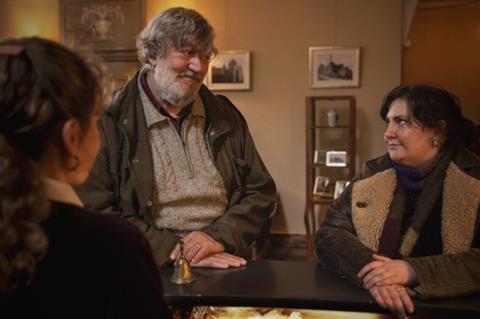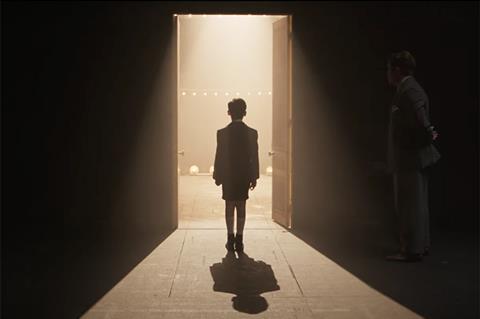Plans to restructure Germany’s national film and TV funding system are dividing the country’s film and TV industry.
Last week, Claudia Roth, Germany’s state minister for culture and the media, unveiled a three-point strategy for a revamped German Film Law (FFG) to be accompanied by two new financial instruments of a tax incentive and an investment obligation.
The incentive scheme would replace the existing German Federal Film Fund (DFFF) and German Motion Picture Fund (GMPF) which between them had provided around €166m in support to German and international projects in 2023, ranging from such international projects as Nine Perfect Strangers and Joshua Oppenheimer’s The End as well as such Berlinale titles Julia von Heinz’s Treasure, Soleen Yusef’s Winners and Asli Özarslan’s Elbow.
The investment obligation would see US and local streamers invest a proportion of their profits in local production.
Roth received a warm welcome from the producers gathered at the German Producers Alliance’s Producers Day in Berlin on February 15, for her first public presentation of the key points in the proposals for the three financial instruments.
The Alliance’s CEO Björn Böhning told the audience of 650 German and international film and TV professionals the plans were “the biggest film funding reform of the last 25 years” and suggested the tax incentive model could be “a boost for the German and film TV industry”.
By contrast, Germany’s distributor and exhibitor trade associations, have expressed their disquiet to the plans, particularly with regard to the FFG and the tax incentive model.
“A bad day for German cinema” was the headline given by the distributors represented by the AG Verleih association to their take on Roth’s plans. It argued there would be “a completely inappropriate shift of emphasis towards streaming and TV”.
“Unfortunately, distribution and cinema have not been taken into account, so that we will not achieve the declared goal of the eight industry associations [set out in a joint paper in January] to attract 35 million viewers for German films,” AG Verleih declared, adding it also missed “a convincing concept for the success of subsidised films at the box office or at festivals”.
The exhibitors gathered in the Hauptverband deutscher Filmtheater and AG Kino Gilde have shared the distributors’ concern about the proposal in the tax incentive discussion paper to abandon the requirement for funded films to provide evidence of a distribution contract and a theatrical window.
The regulations of the current German Federal Film Fund (DFFF) specify a German distributor has to be in place for a producer to access this particular funding, However, many argue this has meant far too many films are released in German cinemas. .
AG Kino’s president Christian Bräuer declared a relaxation of the theatrical window would “not be acceptable” and he was also critical of what is perceived as clear focus of the funding reforms on boosting the production sector in particular.
“It is as if they were only promoting the construction of electric cars without thinking about charging station infrastructure and road networks,” Bräuer said.
Meanwhile, Roth’s proposal to introduce an investment obligation for streamers and other VoD services in line with some other European countries was criticised by local free-to-air and pay-TV broadcaster, ProSiebenSat.1.
“At ProSiebenSat.1 we have built our successes on having the freedom to shape our content offerings in a continuous way to the best needs of the users and that is why we as a group are not in favour of the planned investment obligation”, said CEO Bert Habets.
“We believe in general that leads to over-regulation of the production market.”
His concerns were shared by public broadcaster ARD which suggested in a statement an investment obligation would be a “massive encroachment on the freedom of broadcasting and programme autonomy, which sends out the wrong signal at a time when media freedom is under attack”.
However, it is understood Roth is optimistic the negotiations with her ministerial colleagues in the Olaf Scholz coalition government and with the parliaments in the 16 federal states will ensure that the reform package will be able to come into effect on January 1, 2025.
Originally published at https://www.screendaily.com/news/german-industry-divided-on-plans-to-restructure-film-funding-introduce-streamer-levy/5190798.article
ShowBiz - Show Biz clinic originally published at ShowBiz - Show Biz clinic






